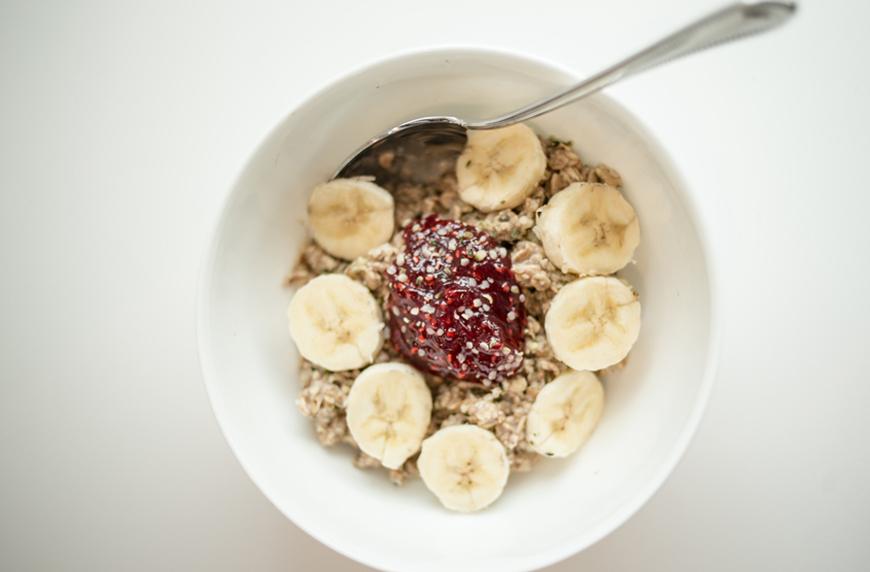Ready to leave?
Oops ! Condition name you have entered is invalid.
You are now leaving Aposbook.com and going to an external site managed by another organization.
Please confirm your email address and try to login again.
This account has been deleted. do you want to restore it?

Validate your email
A verification link will be sent to within the next 2 minutes. Please click it to validate your e mail.
*If you didn't get the link, please check your spam folder
Welcome to Aposbook,
As a registered user, you can benefit from the various free tools and services that we provide.
All you need to do is log in to start discussing with others, interacting, asking questions, and sharing your point of view about the various topics.
You can also write reviews and testimonials about any natural solution you have tried and share your experience. Your feedback can be very helpful.
If you are a health expert, you can add information about any topic or suggest text edit. You can also publish content, including articles and videos, about any topic from the related library section.
Together we can help.
The Aposbook Team
Forgot Password?
A validation link will be sent to you by email. Please confirm your address to log in
*If you didn't get the link, please check your spam folder
Please log in to use this feature
Your account has been suspended because you have violated our code of conduct. If you think this was a mistake, you can contact us by email at: support@aposbook.com "Contact us" form.
Success! Thank you for your feedback. Your contribution can make a difference. Together we can help each other.


Diseases and conditions
Eczema
Eczema: Causes, Prevention, and Natural Treatments
Complete Guide to Eczema
What is Eczema
Eczema, also known as atopic dermatitis, is a chronic skin condition characterized by inflammation, itching, and redness. It often begins in childhood but can develop at any age. The condition presents in various forms and stages, each with its own unique characteristics and management strategies.
Eczema typically evolves through distinct stages, starting with early signs of itching and redness. As it progresses, skin may become dry, scaly, and thickened. Severe cases may involve weeping and crusting. Effective ...
What is Eczema
Eczema, also known as atopic dermatitis, is a chronic skin condition characterized by inflammation, itching, and redness. It often begins in childhood but can develop at any age. The condition presents in various forms and stages, each with its own unique characteristics and management strategies.
Eczema typically evolves through distinct stages, starting with early signs of itching and redness. As it progresses, skin may become dry, scaly, and thickened. Severe cases may involve weeping and crusting. Effective management depends on recognizing these stages and implementing appropriate treatments.
According to the National Eczema Association, 31.6 million people in the United States have some form of eczema.
Types of Eczema:
- Atopic Dermatitis: The most common form, often associated with other allergic conditions like asthma and hay fever.
- Contact Dermatitis: Caused by direct contact with irritants or allergens, resulting in localized skin inflammation.
- Dyshidrotic Eczema: Characterized by small, itchy blisters on the palms of the hands and soles of the feet.
- Nummular Eczema: Presents as round, coin-shaped patches of irritated skin.
- Stasis Dermatitis: Occurs on the lower legs, usually due to poor circulation and venous insufficiency.
Eczema Causes
Eczema is a complex condition with multiple contributing factors. While its exact cause is not fully understood, several elements are believed to play a role in its development.
- Genetic Factors: A family history of eczema, asthma, or allergies increases the likelihood of developing the condition.
- Immune System Dysfunction: An overactive immune response to environmental triggers can cause inflammation and skin irritation.
- Skin Barrier Defects: Individuals with eczema often have a compromised skin barrier, leading to increased sensitivity to ...
Eczema Causes
Eczema is a complex condition with multiple contributing factors. While its exact cause is not fully understood, several elements are believed to play a role in its development.
- Genetic Factors: A family history of eczema, asthma, or allergies increases the likelihood of developing the condition.
- Immune System Dysfunction: An overactive immune response to environmental triggers can cause inflammation and skin irritation.
- Skin Barrier Defects: Individuals with eczema often have a compromised skin barrier, leading to increased sensitivity to irritants and allergens.
- Environmental Triggers: Exposure to allergens like pollen, pet dander, or certain chemicals can exacerbate eczema symptoms.
- Irritants: Frequent contact with irritants such as harsh soaps, detergents, and fabrics can trigger or worsen eczema flare-ups.
Eczema Risk Factors
Certain factors increase the likelihood of developing eczema or experiencing more severe symptoms. Understanding these risk factors can help in both prevention and management.
- Family History: Having relatives with eczema, asthma, or allergies increases the risk of developing the condition.
- Age: Eczema often begins in infancy or early childhood, though it can appear at any age.
- Environmental Conditions: Living in areas with extreme temperatures, low humidity, or high pollution levels can trigger eczema flare-ups.
- Allergies: Individuals with ...
Eczema Risk Factors
Certain factors increase the likelihood of developing eczema or experiencing more severe symptoms. Understanding these risk factors can help in both prevention and management.
- Family History: Having relatives with eczema, asthma, or allergies increases the risk of developing the condition.
- Age: Eczema often begins in infancy or early childhood, though it can appear at any age.
- Environmental Conditions: Living in areas with extreme temperatures, low humidity, or high pollution levels can trigger eczema flare-ups.
- Allergies: Individuals with known allergies are more prone to developing eczema.
- Stress: Emotional stress can exacerbate eczema symptoms and contribute to flare-ups.
Eczema Symptoms
Eczema symptoms can vary in severity and presentation. Identifying these symptoms early is crucial for effective treatment and management.
- Itching: Persistent itching is a hallmark of eczema and often precedes other symptoms.
- Redness and Inflammation: Affected skin areas become red, swollen, and inflamed.
- Dry, Scaly Skin: The skin may appear dry, rough, and scaly, sometimes with noticeable cracks.
- Blisters and Weeping: In more severe cases, blisters may form and leak fluid.
- Thickened Skin: Chronic eczema can lead to ...
Eczema Symptoms
Eczema symptoms can vary in severity and presentation. Identifying these symptoms early is crucial for effective treatment and management.
- Itching: Persistent itching is a hallmark of eczema and often precedes other symptoms.
- Redness and Inflammation: Affected skin areas become red, swollen, and inflamed.
- Dry, Scaly Skin: The skin may appear dry, rough, and scaly, sometimes with noticeable cracks.
- Blisters and Weeping: In more severe cases, blisters may form and leak fluid.
- Thickened Skin: Chronic eczema can lead to thickened, leathery skin due to repeated scratching and inflammation.
Diagnosis of Eczema
Diagnosing eczema involves a combination of clinical evaluation and sometimes laboratory tests. Proper diagnosis is essential for effective treatment and management.
- Medical History: A thorough review of the patient’s medical history, including any family history of eczema or allergies.
- Physical Examination: A healthcare provider examines the skin to identify characteristic signs of eczema and assess its severity.
- Patch Testing: If contact dermatitis is suspected, patch testing may be used to identify specific allergens.
- Blood Tests: In some ...
Diagnosis of Eczema
Diagnosing eczema involves a combination of clinical evaluation and sometimes laboratory tests. Proper diagnosis is essential for effective treatment and management.
- Medical History: A thorough review of the patient’s medical history, including any family history of eczema or allergies.
- Physical Examination: A healthcare provider examines the skin to identify characteristic signs of eczema and assess its severity.
- Patch Testing: If contact dermatitis is suspected, patch testing may be used to identify specific allergens.
- Blood Tests: In some cases, blood tests may be conducted to rule out other conditions or check for elevated levels of inflammatory markers.
- Skin Biopsy: A biopsy may be performed to confirm the diagnosis or differentiate eczema from other skin conditions.
Natural Treatments for Eczema
There are several natural remedies that can help manage eczema and reduce its symptoms, as well as prevent flare-ups. Click on natural treatments for eczema to find a detailed list of all the natural solutions to treat and prevent eczema, including various natural therapies, diet programs, alternative medicine, vitamins, supplements, herbal medicine, and home remedies. You can also go to www.aposbook.com to find all the natural treatments for any medical condition IN ONE CLICK.
Meanwhile, here are ...
Natural Treatments for Eczema
There are several natural remedies that can help manage eczema and reduce its symptoms, as well as prevent flare-ups. Click on natural treatments for eczema to find a detailed list of all the natural solutions to treat and prevent eczema, including various natural therapies, diet programs, alternative medicine, vitamins, supplements, herbal medicine, and home remedies. You can also go to www.aposbook.com to find all the natural treatments for any medical condition IN ONE CLICK.
Meanwhile, here are some of the most common natural solutions aiming to treat eczema and restore skin health:
Diet Programs
- Anti-inflammatory Diet: Focuses on foods rich in omega-3 fatty acids, such as salmon, flaxseeds, and walnuts, to reduce inflammation.
- Elimination Diet: Identifies and removes potential food allergens like dairy, gluten, or nuts that may trigger eczema flare-ups.
- Mediterranean Diet: This plant-based diet includes fruits, vegetables, whole grains, and healthy fats, all of which support skin health and reduce inflammation.
Herbal Medicine
- Turmeric: Known for its anti-inflammatory properties, turmeric can be applied topically or consumed to reduce eczema symptoms.
- Calendula: A soothing herb that can be applied as a cream or oil to calm inflamed and irritated skin.
- Chamomile: Chamomile tea or topical preparations may help reduce redness, itching, and irritation.
Vitamins and Supplements
- Vitamin D: Studies have shown that people with eczema often have low vitamin D levels, and supplementation may help improve skin health.
- Probiotics: These promote a healthy gut microbiome, which may help modulate the immune system and reduce eczema flare-ups.
- Zinc: This mineral supports skin healing and immune function, and it may help reduce the severity of eczema symptoms.
Alternative Medicine
- Acupuncture: This traditional Chinese medicine practice may help reduce inflammation and promote relaxation, easing eczema symptoms.
- Wet Wrap Therapy: Involves applying wet bandages over moisturized skin to lock in hydration and calm irritation.
- Aromatherapy: Essential oils like lavender or tea tree oil may help soothe the skin, but they should be used with caution and diluted to avoid irritation.
Medical Treatment for Eczema
For severe cases of eczema, medical treatments might be necessary to control symptoms and prevent infections. These treatments focus on reducing inflammation, alleviating itching, and repairing the skin barrier.
- Topical Corticosteroids: Steroid creams and ointments are the most commonly prescribed treatment for eczema. They help reduce inflammation and itching when applied directly to affected areas. However, long-term use should be monitored to prevent side effects.
- Topical Calcineurin Inhibitors: These non-steroid creams (such as tacrolimus and pimecrolimus ...
Medical Treatment for Eczema
For severe cases of eczema, medical treatments might be necessary to control symptoms and prevent infections. These treatments focus on reducing inflammation, alleviating itching, and repairing the skin barrier.
- Topical Corticosteroids: Steroid creams and ointments are the most commonly prescribed treatment for eczema. They help reduce inflammation and itching when applied directly to affected areas. However, long-term use should be monitored to prevent side effects.
- Topical Calcineurin Inhibitors: These non-steroid creams (such as tacrolimus and pimecrolimus) are often prescribed to suppress immune responses in moderate to severe eczema cases. They are useful for sensitive areas like the face or groin.
- Oral Medications: In more severe cases, oral medications may be prescribed to manage eczema symptoms.
- Antihistamines: Help control itching, especially at night, allowing for better sleep.
- Oral Corticosteroids: Prescribed for short-term use in severe flare-ups to reduce widespread inflammation quickly.
- Immunosuppressants: Drugs like cyclosporine or methotrexate may be used for chronic, severe eczema that doesn’t respond to other treatments.
- Biologic Therapy: For patients with severe eczema that doesn’t respond to conventional treatments, biologic therapies like dupilumab may be an option. This therapy targets specific proteins in the immune system to reduce inflammation and itching.
Frequently asked Questions About Eczema
What is eczema, and what are its symptoms?
Eczema is a chronic skin condition characterized by inflammation, redness, itching, and dry skin. Symptoms may include rashes, oozing sores, thickened skin, and scaly patches.
Can eczema be cured?
There is no cure for eczema, but it can be effectively managed with treatments like moisturizers, topical steroids, and lifestyle changes to reduce flare-ups.
What causes eczema flare-ups?
Eczema flare-ups can be triggered by various factors, including stress ...
Frequently asked Questions About Eczema
What is eczema, and what are its symptoms?
Eczema is a chronic skin condition characterized by inflammation, redness, itching, and dry skin. Symptoms may include rashes, oozing sores, thickened skin, and scaly patches.
Can eczema be cured?
There is no cure for eczema, but it can be effectively managed with treatments like moisturizers, topical steroids, and lifestyle changes to reduce flare-ups.
What causes eczema flare-ups?
Eczema flare-ups can be triggered by various factors, including stress, allergens, harsh soaps, environmental factors, and certain foods. Identifying and avoiding triggers can help manage the condition.
Is eczema contagious?
No, eczema is not contagious. It is a skin condition often related to genetics and environmental triggers, but it cannot be passed from person to person.
What natural treatments help with eczema?
Natural treatments like an anti-inflammatory diet, herbal remedies (turmeric, calendula), and supplements (vitamin D, probiotics) can help reduce eczema symptoms. Alternative treatments like acupuncture or wet wrap therapy may also provide relief.
What are the medical treatments for eczema?
Medical treatments include topical corticosteroids, topical calcineurin inhibitors, oral antihistamines, and immunosuppressants. Severe cases may require biologic therapies or light therapy.
How can diet affect eczema?
Certain foods, like dairy, gluten, or nuts, may trigger eczema flare-ups in some individuals. Anti-inflammatory diets, rich in fruits, vegetables, and omega-3 fatty acids, can help reduce inflammation and improve skin health.
What vitamins and supplements help with eczema?
Vitamins and supplements like vitamin D, zinc, and probiotics may support skin health and help manage eczema symptoms. They can strengthen the immune system and reduce inflammation.
How is eczema diagnosed?
Eczema is diagnosed through a physical examination by a healthcare provider, based on symptoms. Patch tests or blood tests may also be used to identify potential allergens or triggers.
Explore other Diseases and conditions
Natural Treatments for Eczema
Dos and Don'ts
Library center Eczema
Success storiess

Documentary - How to cure Eczema and psoriasis thank's to ayurveda

Eczema diet. What foods to eat and not eat. What I personally ate!

About Karen Fischer



































[0]